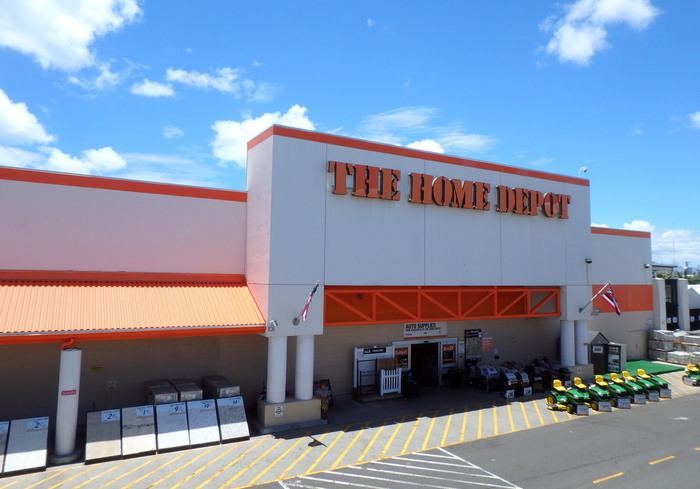Home Depot’s Big Beat On Earnings

It was a big second quarter for hardware and home goods retailer Home Depot, as it posted record-breaking Q2 results that were well ahead of Wall Street expectations.
A warm summer, it seems, sprouted lots of sales at Home Depot, making up for a cool spring that put the chill on sales. Things were strong enough in Q2, in fact, that Home Depot has given its full year’s forecasts and upward revision, as both the number and size of consumer transactions were on the rise through this quarter.
The market liked the news: Home Depot’s stock was trading up 1 percent post-earnings announcement.
By the numbers, Home Depot reported $3.05 EPS vs. the $2.84 analysts were looking for pre-release. Revenue was up $30.46 billion, beating out the $30.03 billion anticipated. The much-watched comparable store sales rate was up 8 percent worldwide, a much bigger increase than the 6.6 percent forecast.
“As expected, the majority of seasonal sales we missed in the first quarter were recovered in the second quarter,” CEO Craig Menear said Tuesday morning during a call with analysts and investors.
On the whole, Oppenheimer Analyst Brian Nagel told CNBC, Home Depot has been the beneficiary of both favorable weather in Q2 – which offset sluggish sales during Q1 due to a winter than hung around a bit longer than anyone was expecting – and an environment where increasing housing prices are actually stimulating home improvement projects. “If you are a homeowner and your home is continuing to go up in value, you feel much more comfortable investing back in that home,” he noted.
Sales on a per-square-foot basis climbed 8.6 percent during the quarter, according to the retailer. It also said the average shopper’s ticket jumped 5 percent to $66.20, and customer transactions were up 3.1 percent overall.
For the back-half of the year, Home Depot has pledged its focus to expanding its professional homebuilder business, a project it believes will be critically aided by bolstering its delivery platform. The company had previously announced its intention to expend $1.2 billion over the next five years to improve its supply chain, with the goal of getting online orders to shoppers more quickly.
As of the quarter just ended, Home Depot noted its strongest selling categories were lumber, indoor garden, outdoor garden and electrical supplies. The chain also confirmed that “big-ticket purchases” — goods above $1,000, like appliances — now represent 20 percent of sales in the U.S. and were up 10.6 percent during the quarter from a year earlier.
The strength in Q2 led Home Depot to revise its expectations for the rest of the year. The Atlanta-based retailer is forecasting revenue to climb 7 percent this year, up from its previous forecast of 6.5 percent. Same-store sales should be up about 5.3 percent in fiscal 2018, Home Depot said, up from a previous target of 5 percent growth.
All in, Home Depot’s share price is up about 25 percent in 2018, bringing its market cap to $223.9 billion. That nearly triples the market cap of its most direct competitor, Lowe’s, whose market cap is currently around $79.2 billion.